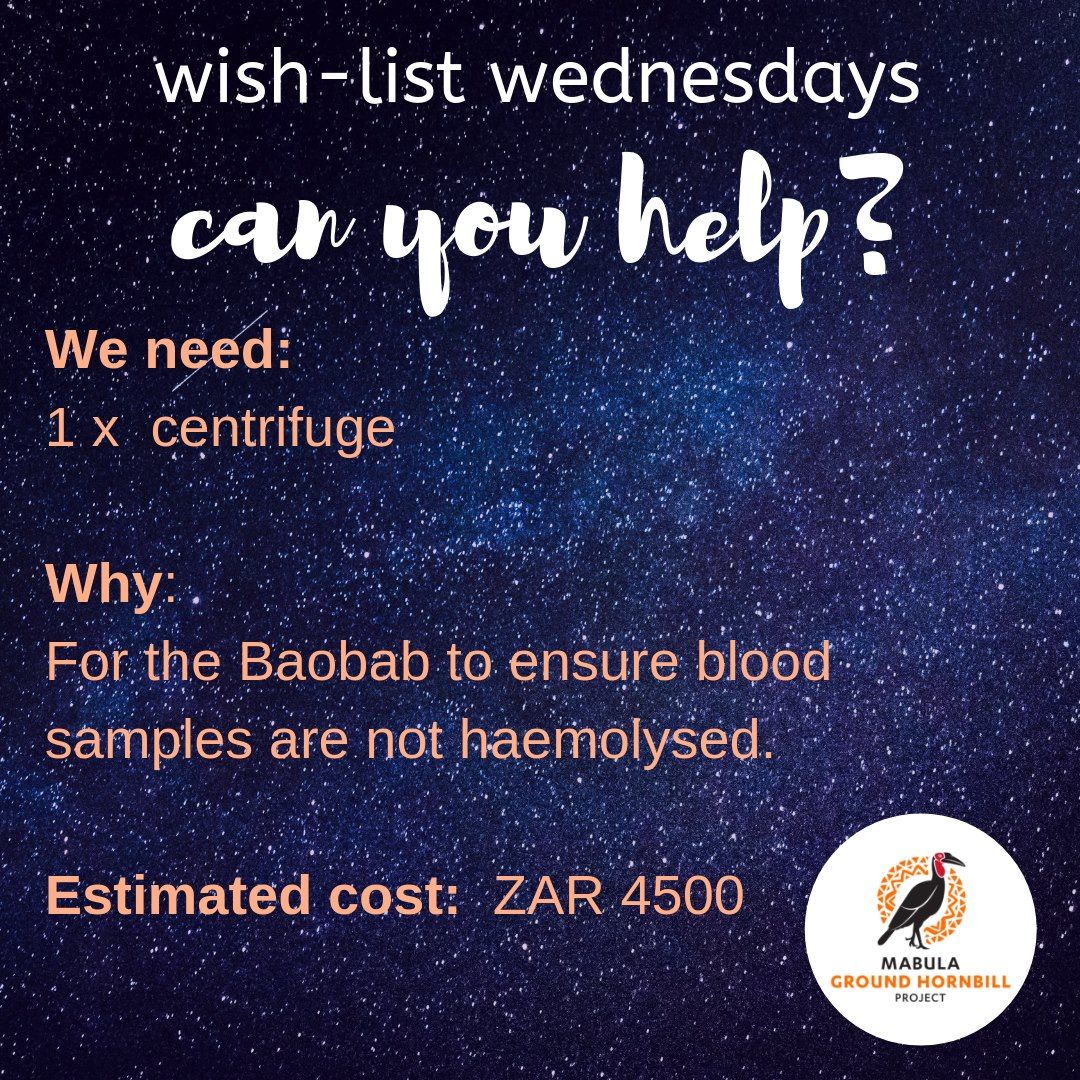THE THUNDERBIRD
NEWSLETTER
MABULA GROUND HORNBILL PROJECT
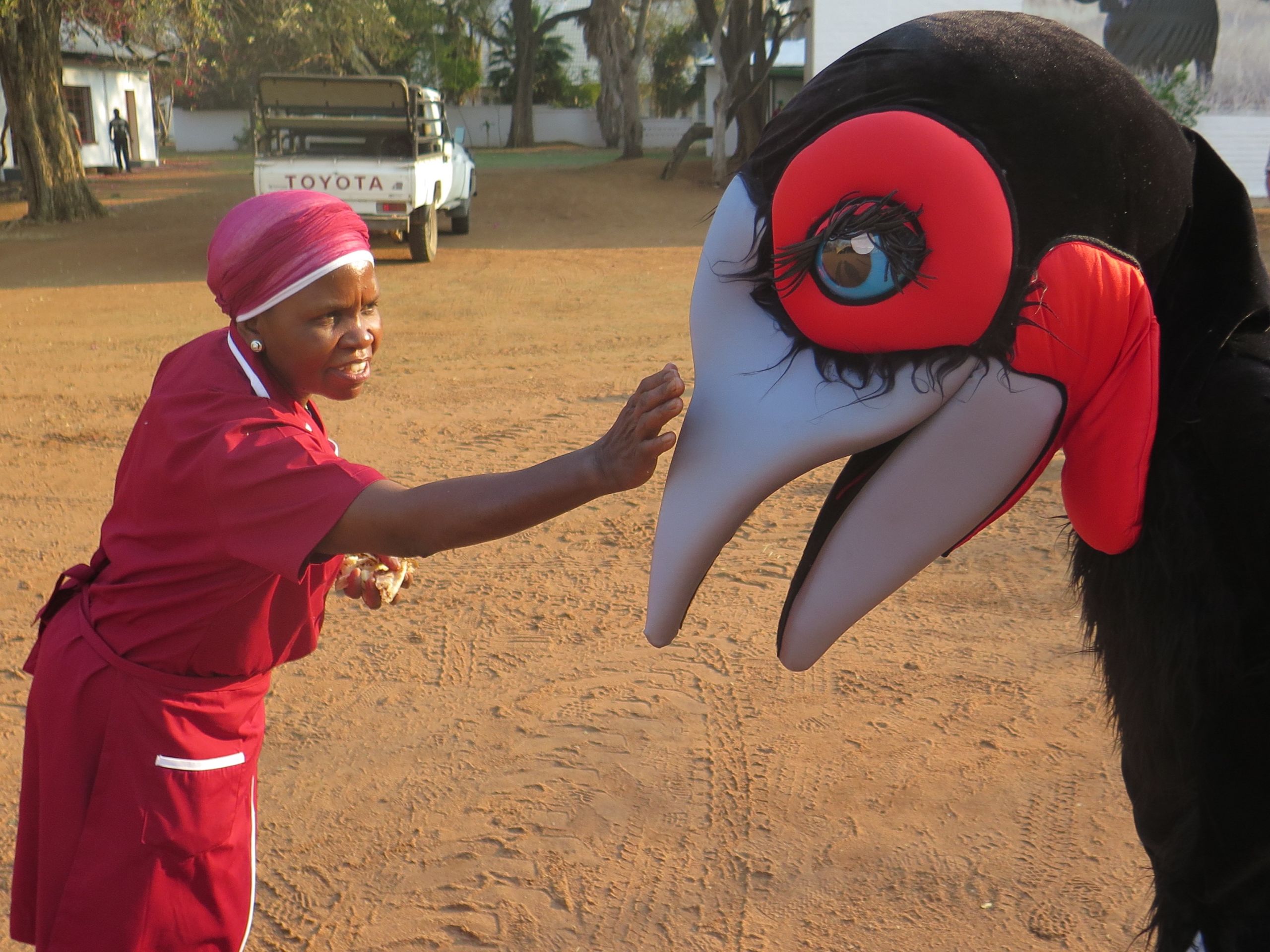
MOVING IN
Over the last months, as we have ironed out the creases in each aviary, we have started to move the reintroduction and captive breeding stock into the Baobab and everyone has settled nicely.
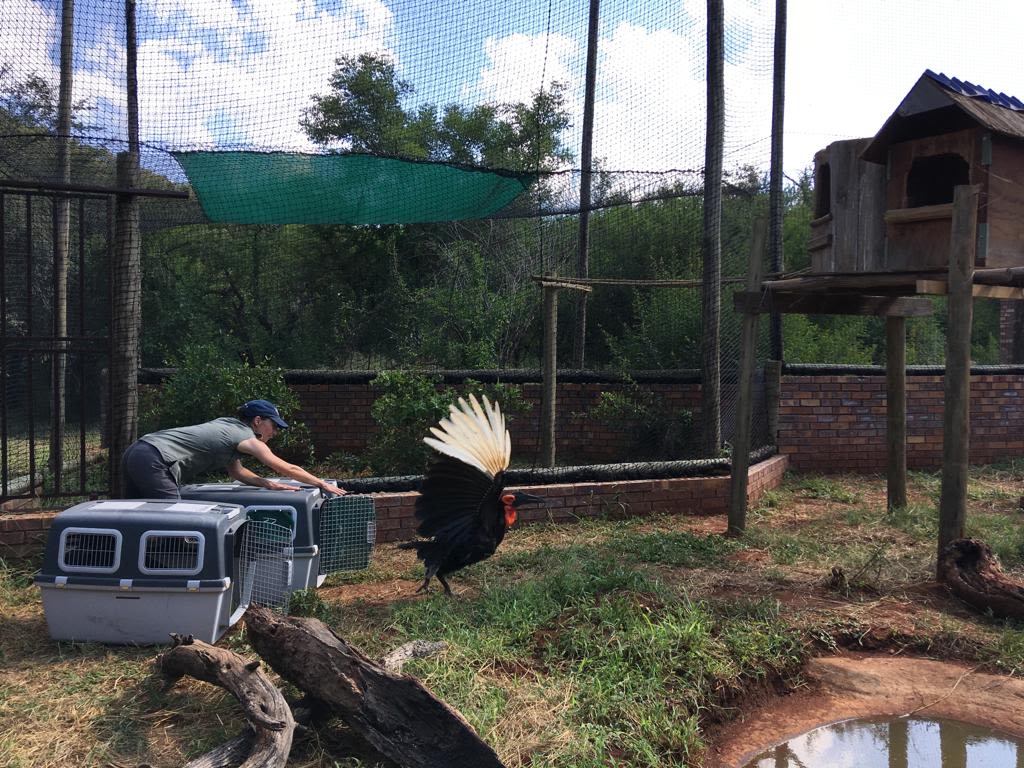
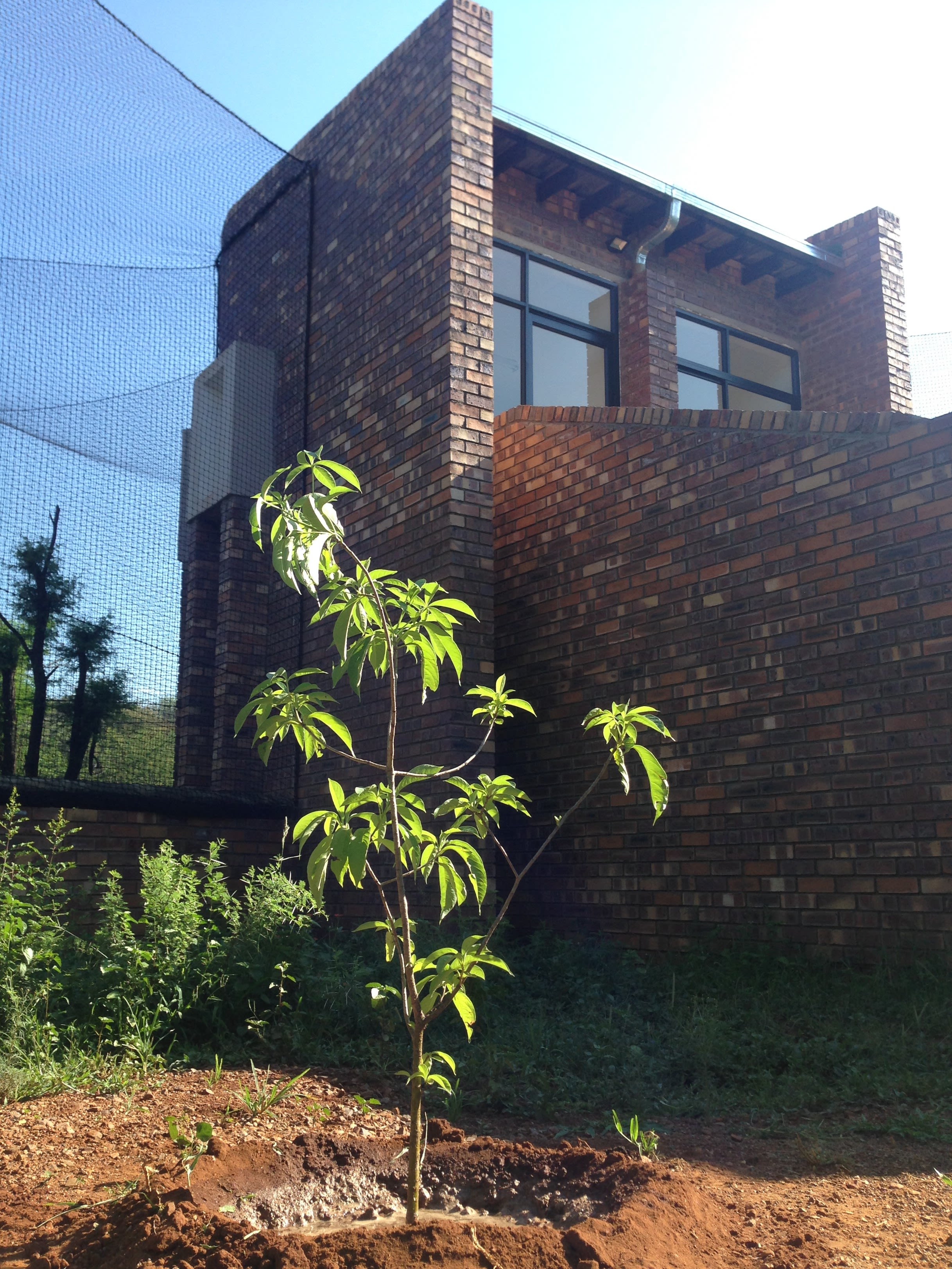
A little baobab tree planted at the Baobab Rearing Centre that we hope will grow huge as only a baobab can. Thanks for this thought Ertjie Rhom - we love it.
A little baobab tree planted at the Baobab Rearing Centre that we hope will grow huge as only a baobab can. Thanks for this thought Ertjie Rhom - we love it.
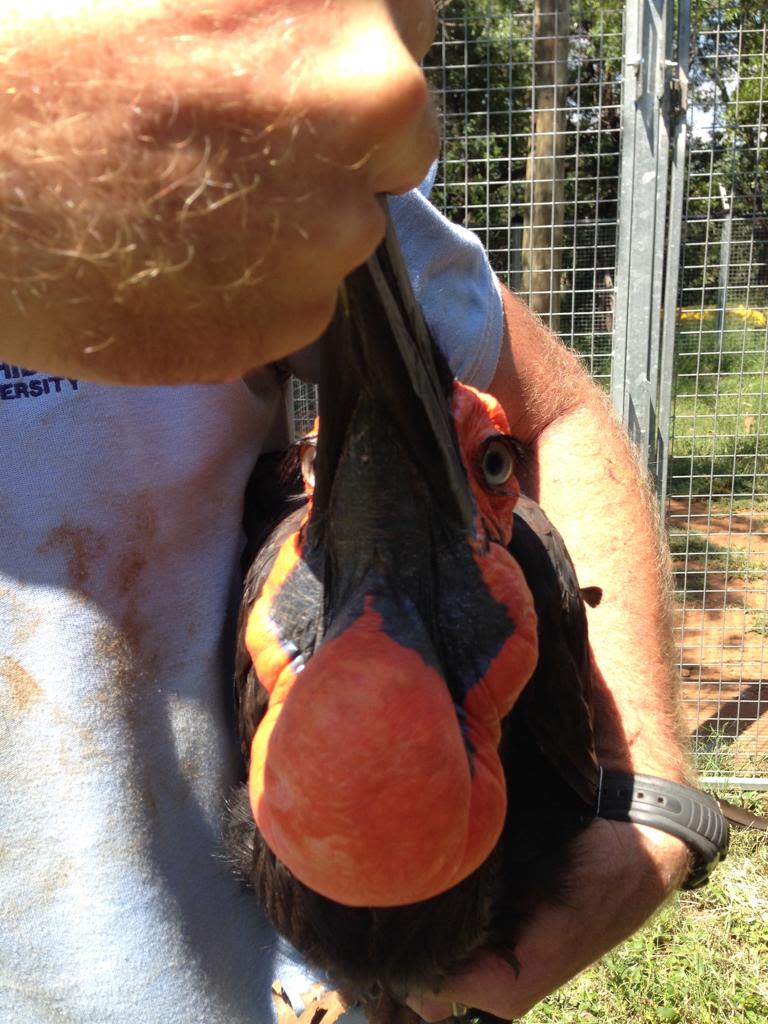
Each bird received a full health check, and the newest additions from the 2018 harvest were micro-chipped and ringed.
Each bird received a full health check, and the newest additions from the 2018 harvest were micro-chipped and ringed.
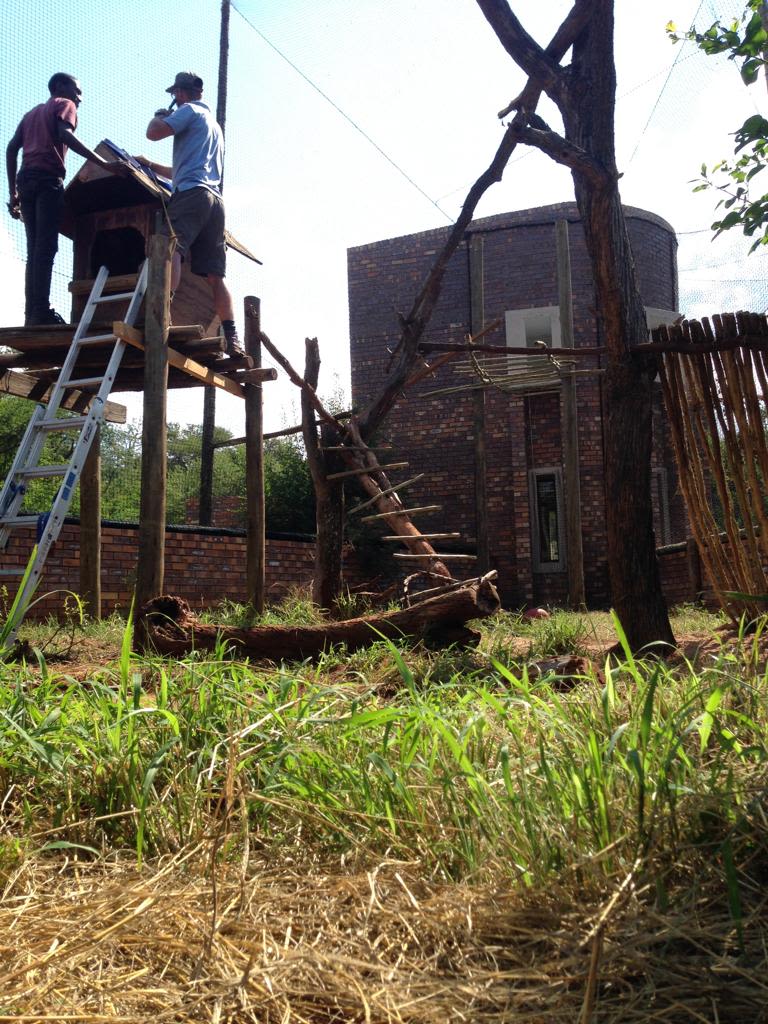
Hein Nel and the MTPA team moved in furniture for the birds - beautiful big perches, the nest boxes they know and love, and carefully swept each aviary with a metal-detector to ensure that no little bits of metal where available for young, naive birds to ingest,
Hein Nel and the MTPA team moved in furniture for the birds - beautiful big perches, the nest boxes they know and love, and carefully swept each aviary with a metal-detector to ensure that no little bits of metal where available for young, naive birds to ingest,
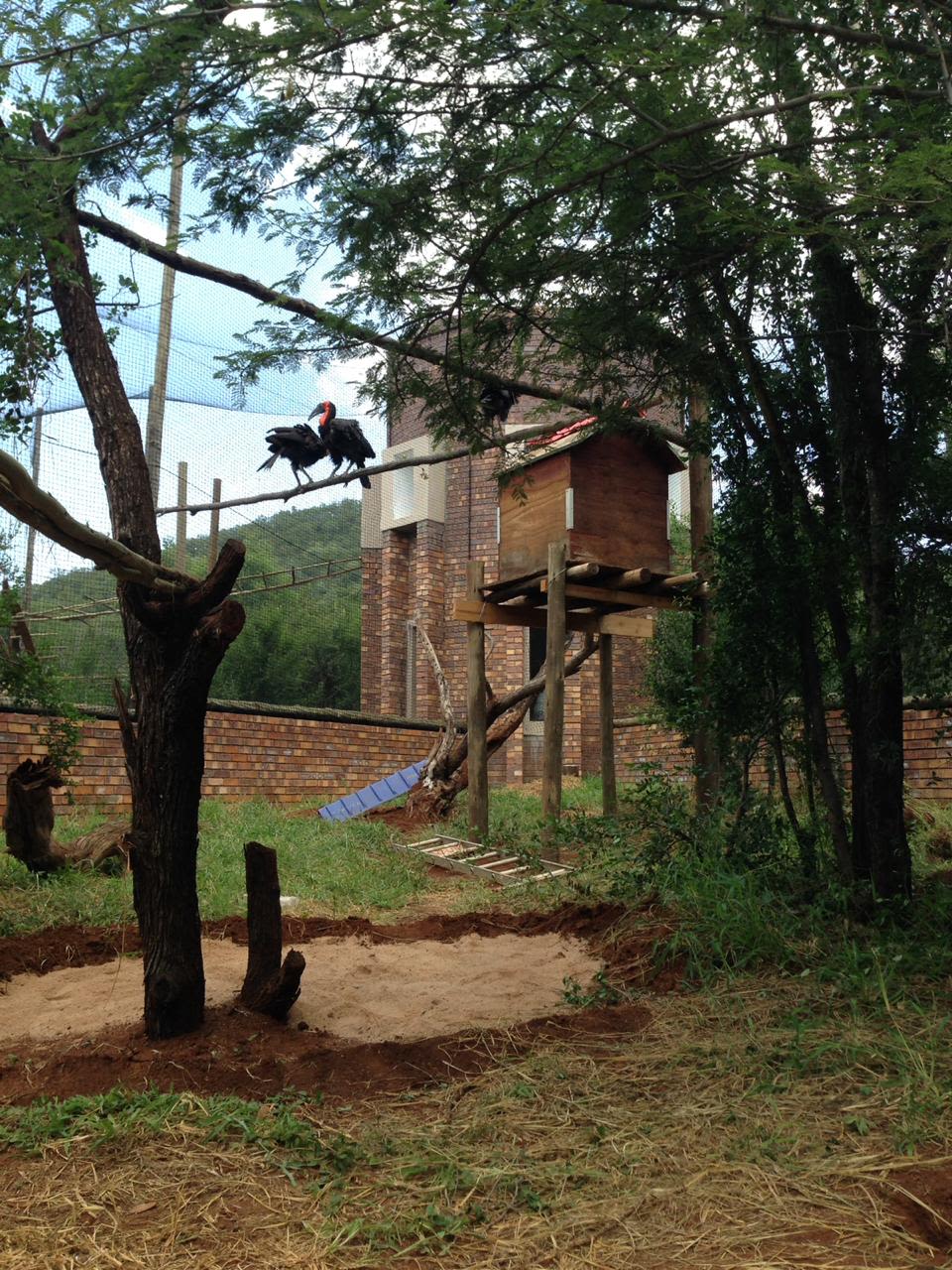
The birds immediately started investigating every inch of their new home - including the sand pits we put in for them to dust bath in.
The birds immediately started investigating every inch of their new home - including the sand pits we put in for them to dust bath in.
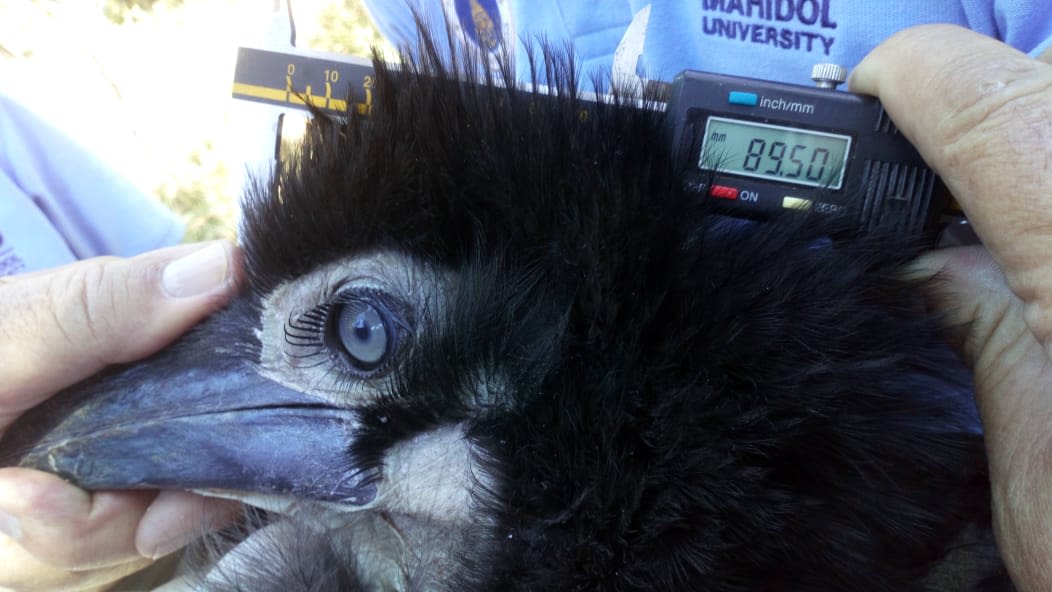
This little fellow, Ntwane2018, was the first chick hatched and fledged into the Loskop Dam Nature Reserve reintroduced group. Such an incredible milestone. See our Facebook page for a short video of the actual moment he fledged.
This little fellow, Ntwane2018, was the first chick hatched and fledged into the Loskop Dam Nature Reserve reintroduced group. Such an incredible milestone. See our Facebook page for a short video of the actual moment he fledged.
LESSONS ABOUT NATURAL DISPERSAL OF YOUNG MALES
This January two beta males dispersed from two reintroduced groups and this has given us an incredible opportunity to study these dynamics.
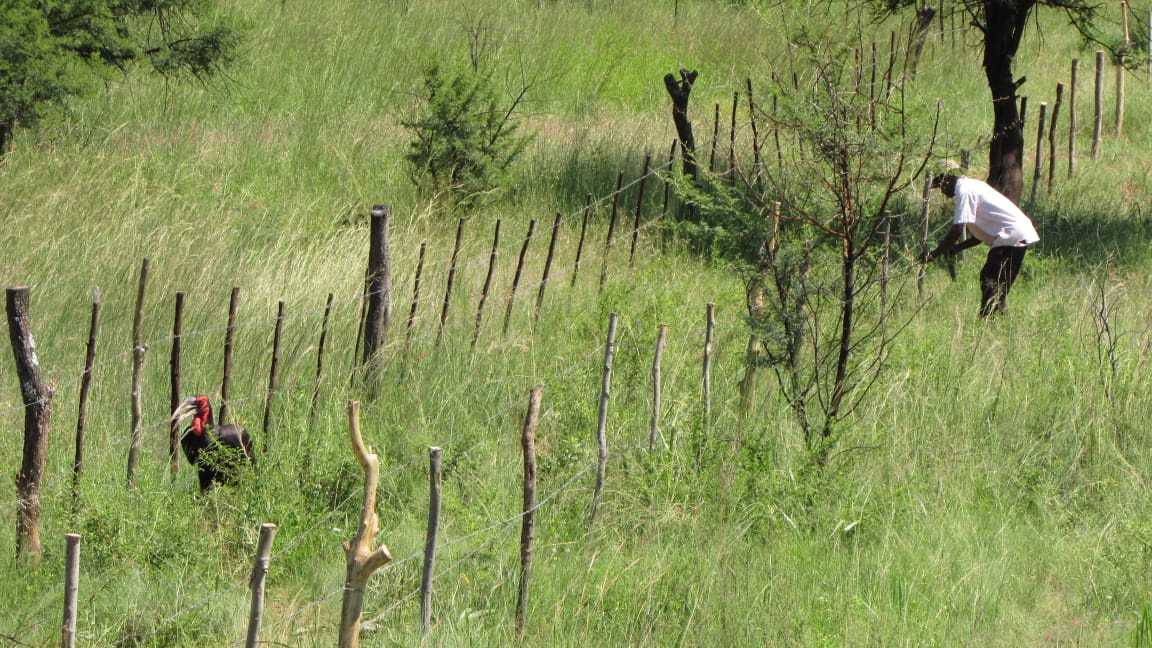
To witness a dispersal event of such a long-lived and low density occurring species is nigh on impossible yet this season we were able to witness two! At Mabula Janovski, the eldest beta-male was observed showing too much interest in the alpha female over the past breeding season and on the 4th of January, Storm, the alpha male took action. He was chased from the group and to-date has been physically kept at the perimeter of their territory. He hunts well and is strong and well, but no longer has his group mates to help him allo-preen his ticks off.
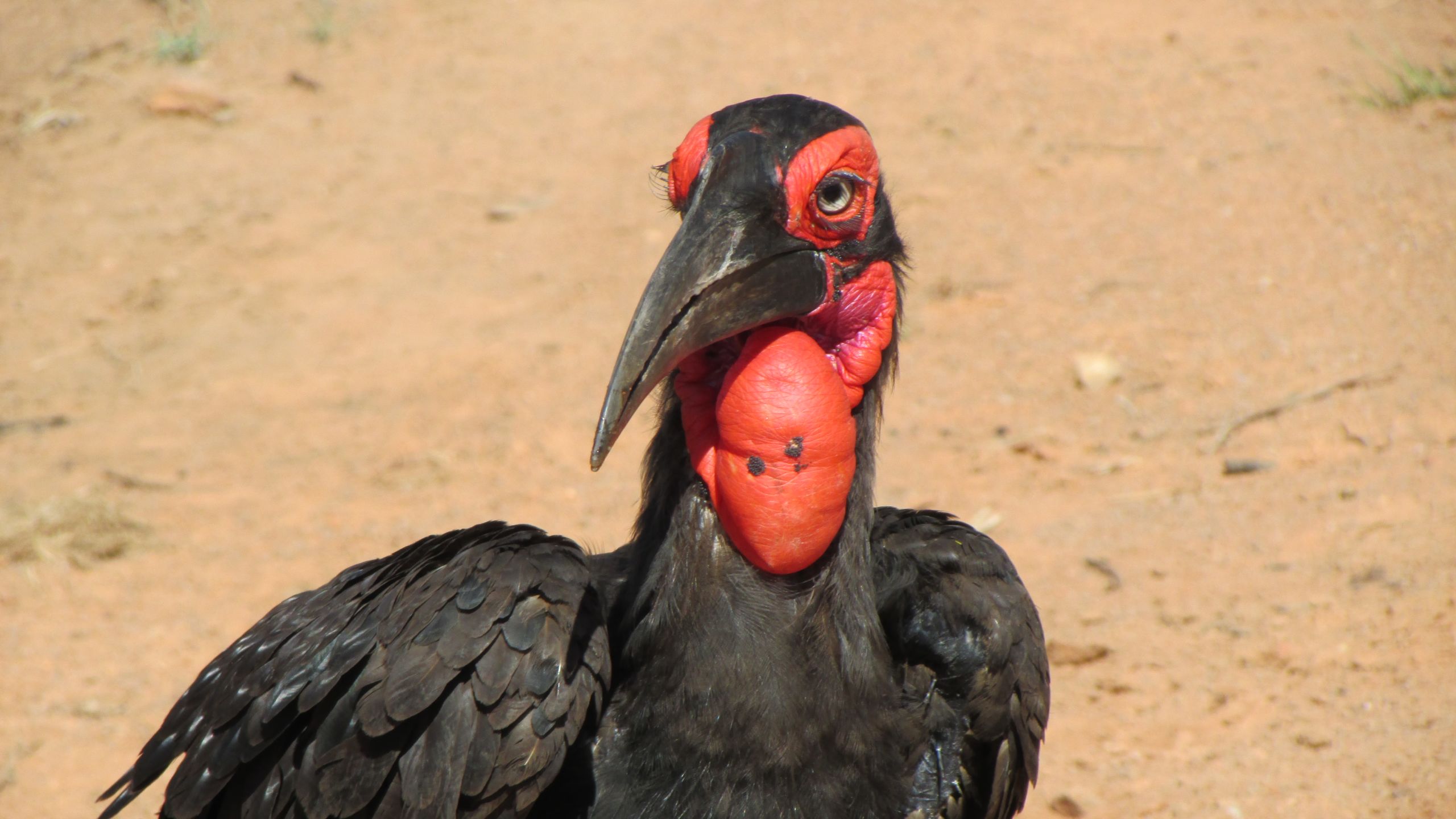
Janovsky is now solo.
Janovsky is now solo.
At roughly the same time another beta-male, Karan Khaya, dispersed from his group at Loskop Dam Nature Reserve. He however left the safe confines of the reserve and moved into the neighbouring communities.
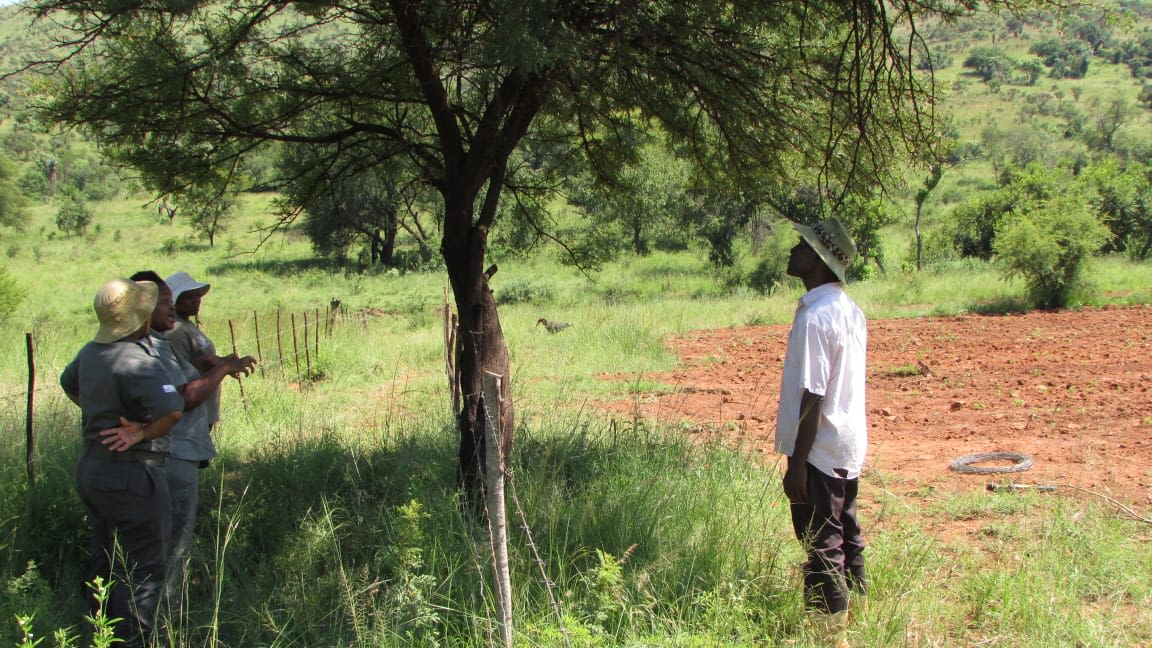
The team with Mr Albert Simelane where Karan Khaya has decided he feels safe.
The team with Mr Albert Simelane where Karan Khaya has decided he feels safe.
This caused much concern for his safety as some in the community 7 km from the reserve felt they may be able to get some money if they caught him. Others were very frightened of him as he arrived at the same time as a sangoma initiate returned home from her training. We completed door-to-door outreach to 300 people, followed by presentations by our education team and the Loskop Dam environmental monitors at both schools in the area. He may have felt unsafe and moved back towards the reserving, now remaining on the farm of Mr Albert Simelane. He contacted us and the team went to meet him. He is very happy for the bird to remain there and will protect him.
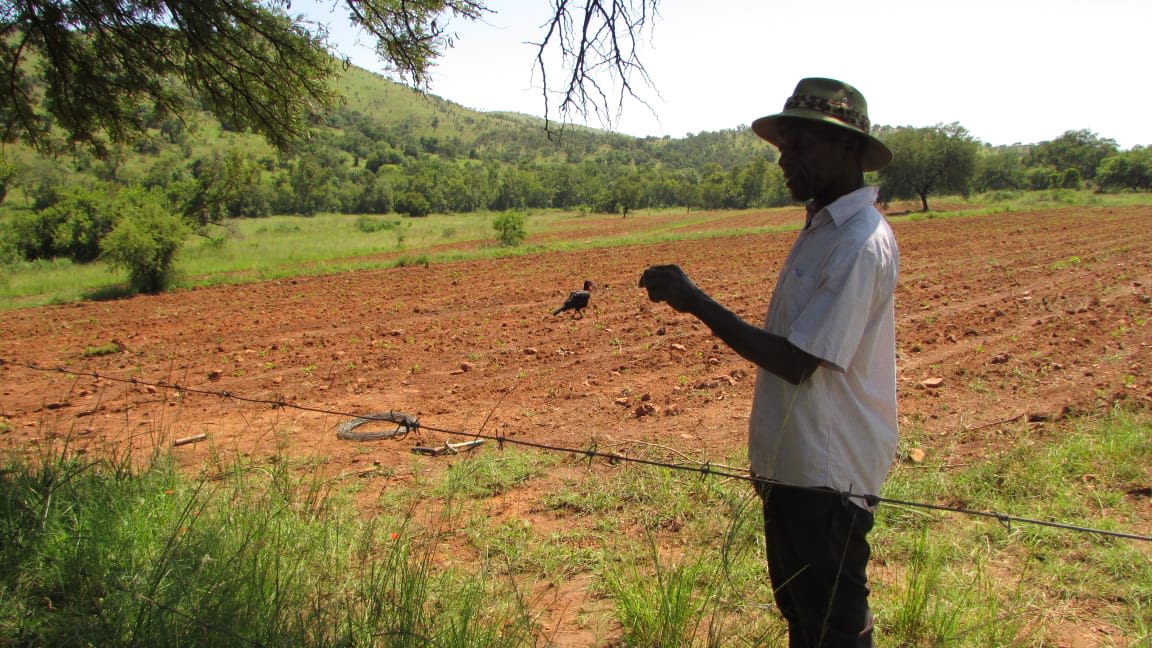
Mr Simelane and Karan Khaya now share this farm while we make plans to move him to begin an entirely new breeding group.
Mr Simelane and Karan Khaya now share this farm while we make plans to move him to begin an entirely new breeding group.
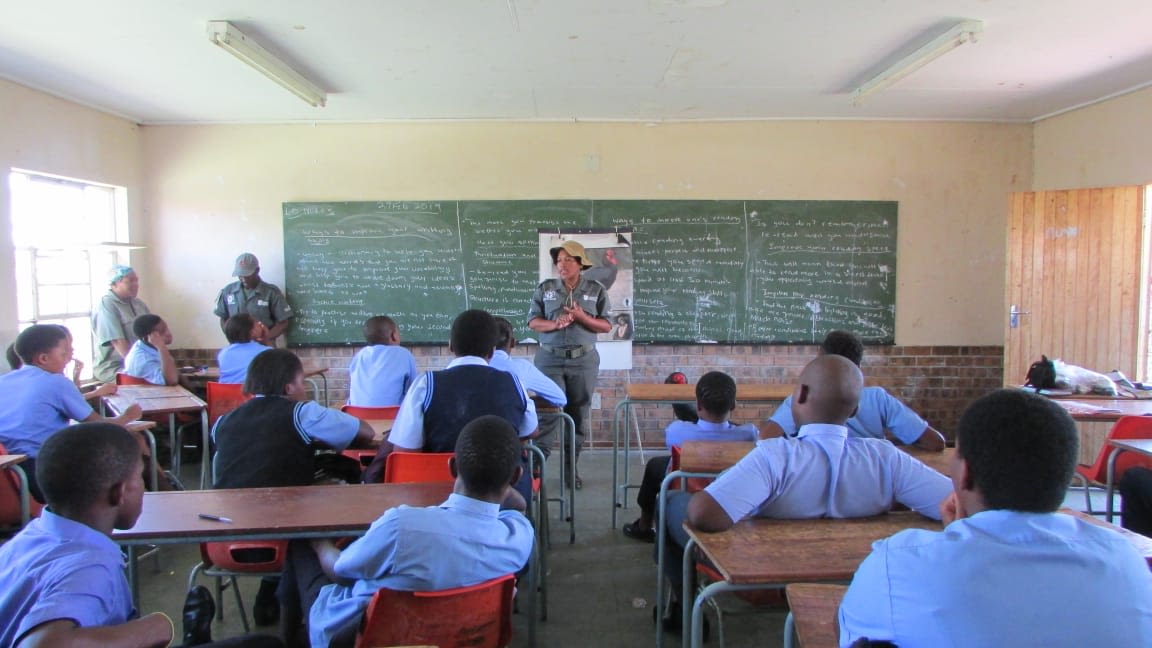
The MGHP-MTPA education team explaining this bird to the schools in the areas
The MGHP-MTPA education team explaining this bird to the schools in the areas
farewell trusty steeds
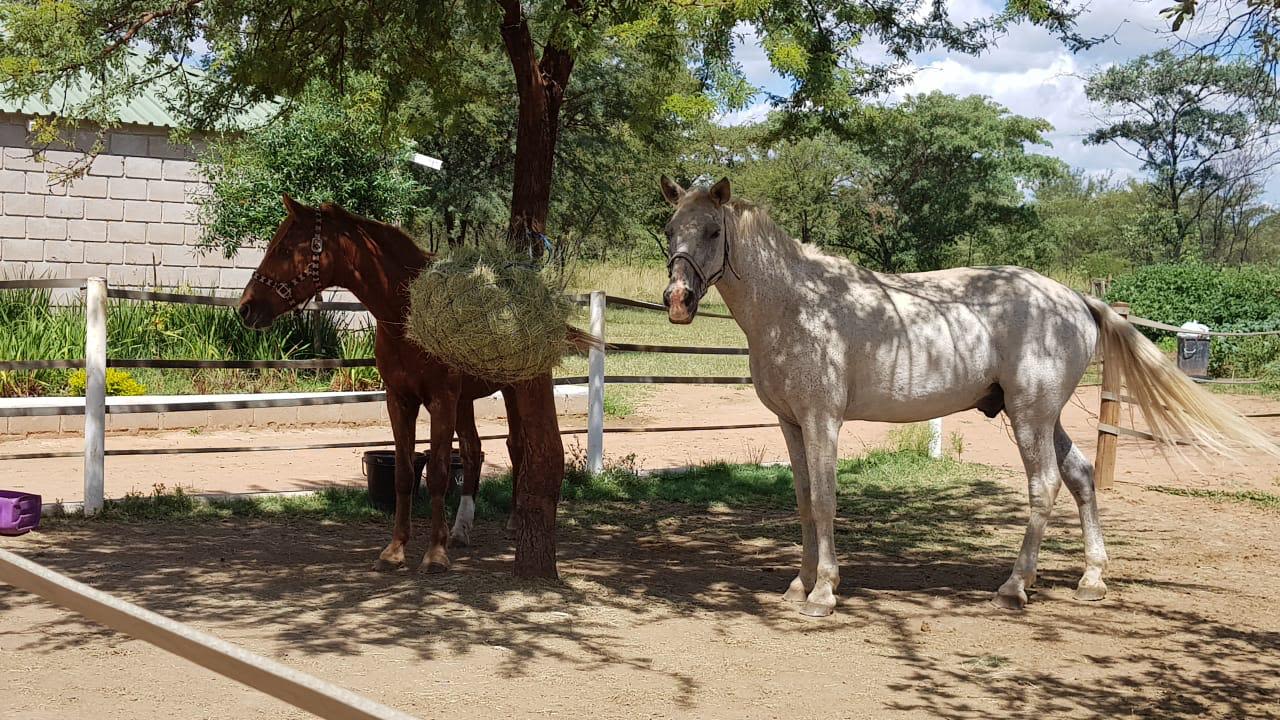
GET TO KNOW OUR TEAM: NATASHA NEL
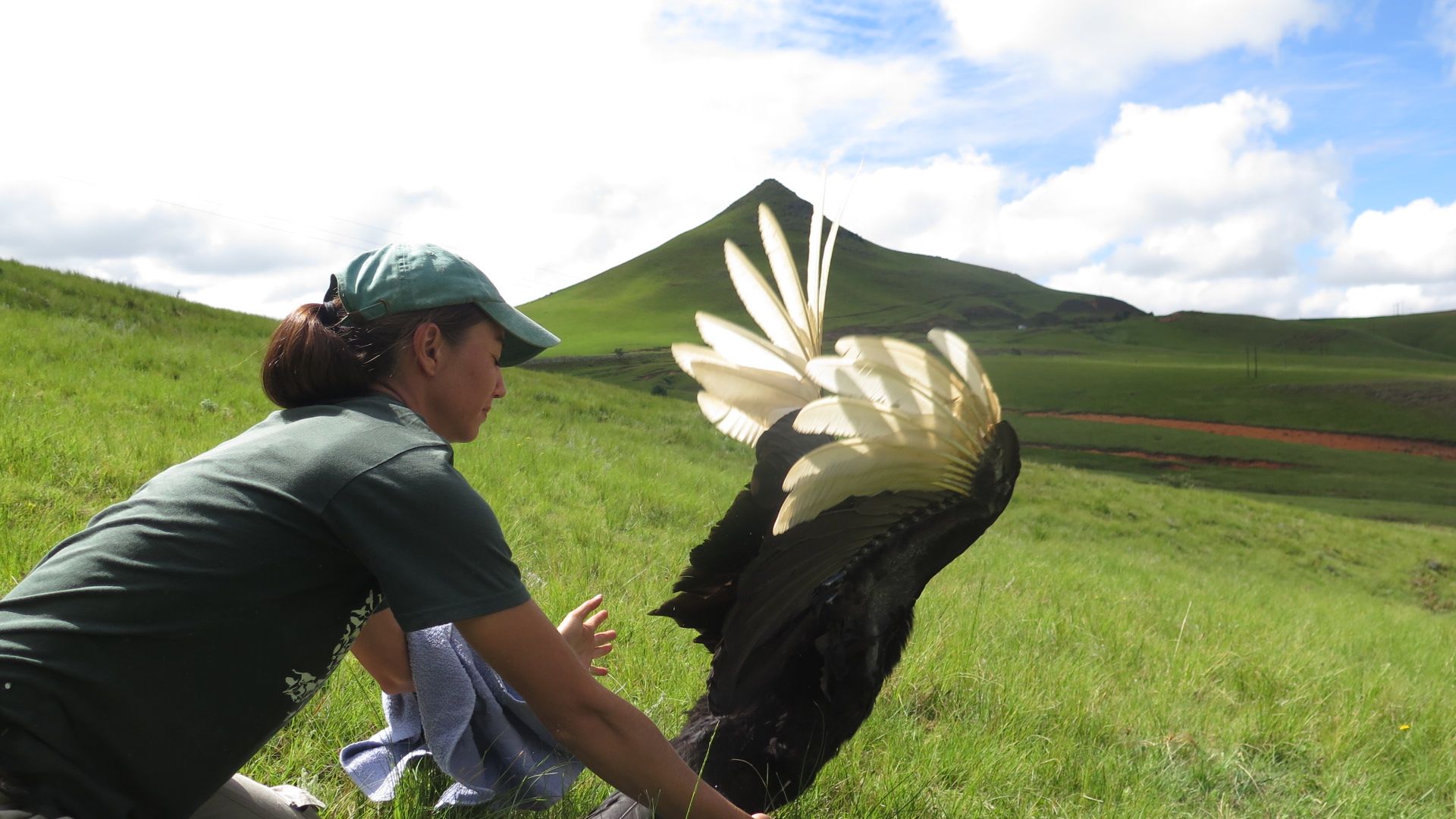
Ever since I was a young girl, I always knew that one day I would want to work in the conservation sector, wanting to make a meaningful difference. I was beside myself, the day I applied for an opening at the Mabula Ground Hornbill Project, and was successful in my application. I remember the interview clearly, and sitting on eggs the week thereafter, awaiting the outcome of the Boards decision. I was to embark on a very steep learning curve, one which however, would also be very rewarding and life changing.
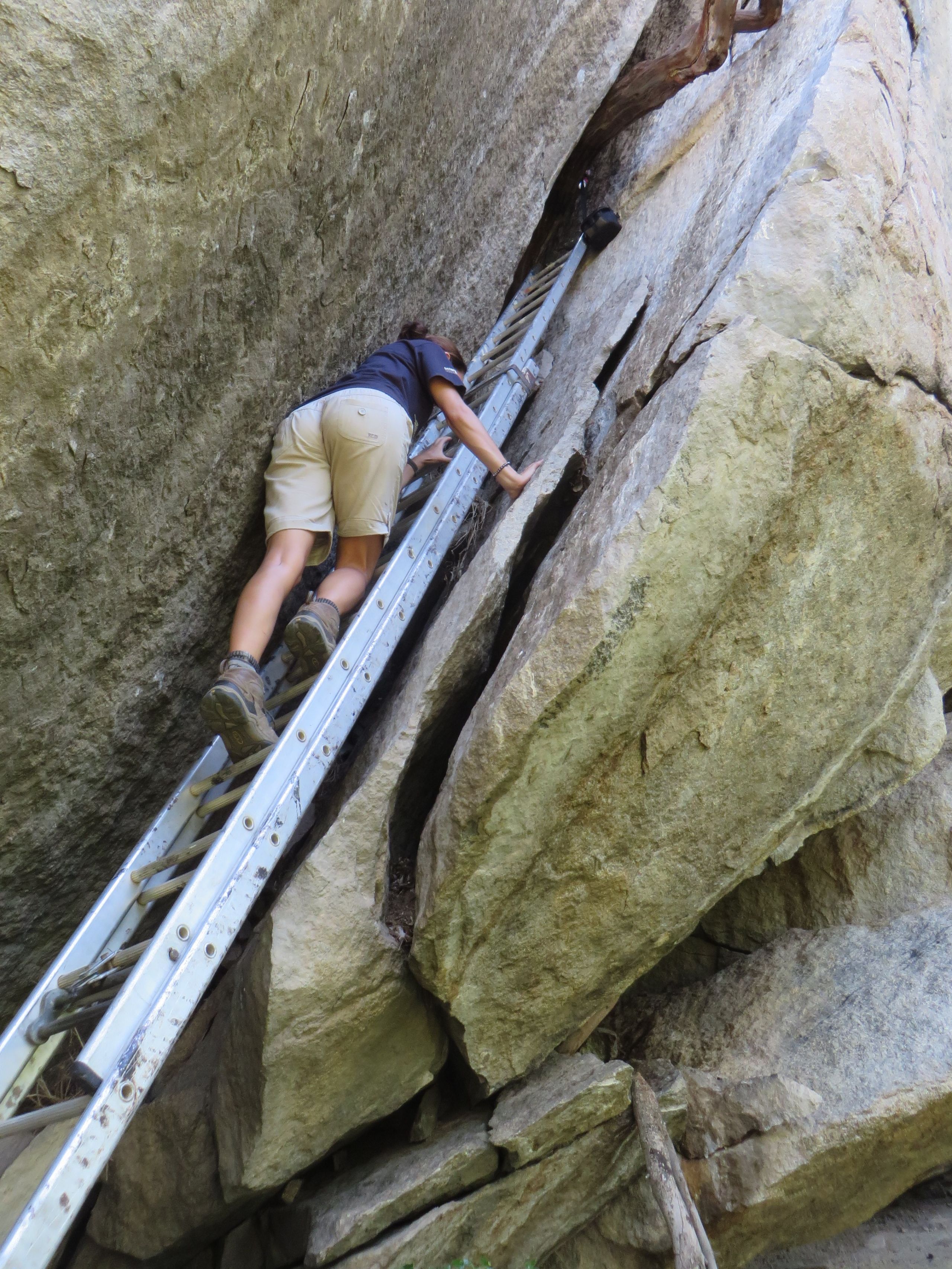
Initially I spent my days learning the ropes and the intricacies of working for a NPO, which was a first for me. Having had previous experience with radio telemetry, I quickly slotted into the daily monitoring of the Mabula group. As time passed, I became more efficient in handling and processing techniques, procedures for harvesting of second hatched chicks, husbandry of captive stock, financial management and eventually seeing to pass actual releases at various locations.
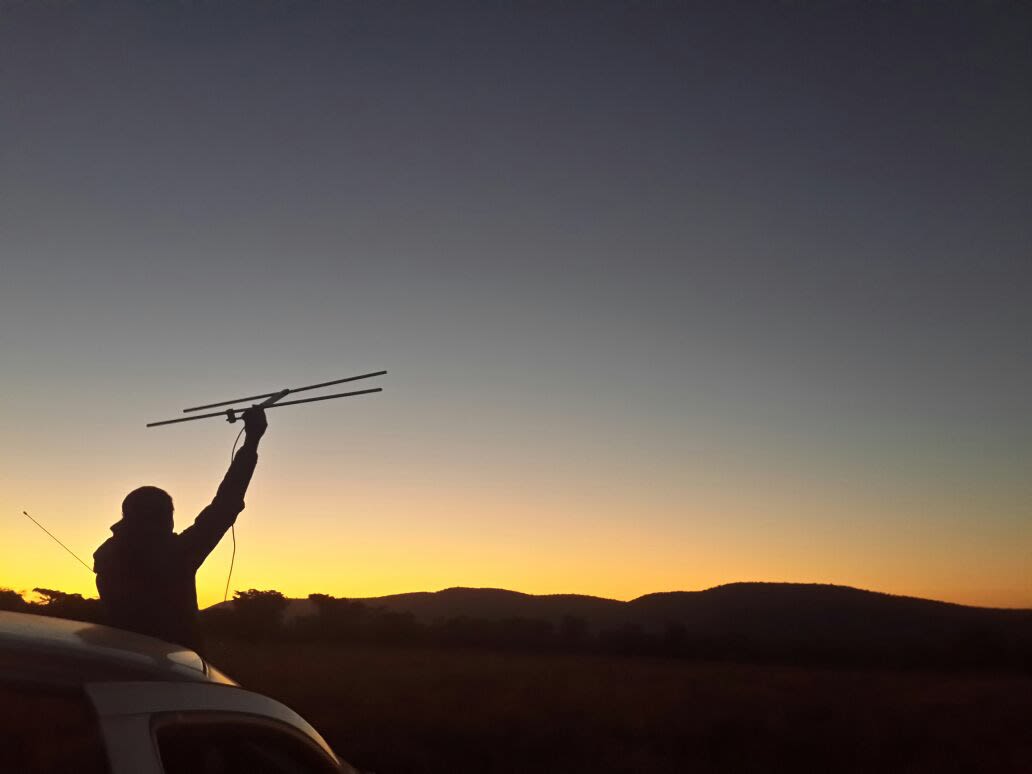
I have spent many a day monitoring ground-hornbills at the various release sites, watching closely, and learning what the species requires in order to survive. Reintroductions are very delicate, and depends largely on good quality birds, that will not only survive out in the wild, but also be capable of fulfilling their role within their social system. As for all the highs, unfortunately there has also been a myriad of lows. Every loss encountered is heart breaking, but valuable lessons are learnt which enable us to streamline the recipe.
In 2018 a long awaited dream came true with the opening of the Baobab Southern Ground-Hornbill Conservation Rearing Centre, based at Loskop Dam Nature Reserve. I am very fortunate to now call this my home, and to fulfill my dream, of coming full circle, in being able to rear ground-hornbill chicks for the release program. Having spent all those years monitoring and being involved in actual releases on the ground, has taught me valuable lessons and experiences, I now carry with me into my new role. This knowledge of the eventual desired outcome of this program, helps guide the day to day management of this Centre, with the aim to one day see ground-hornbills flourish across our country once again.
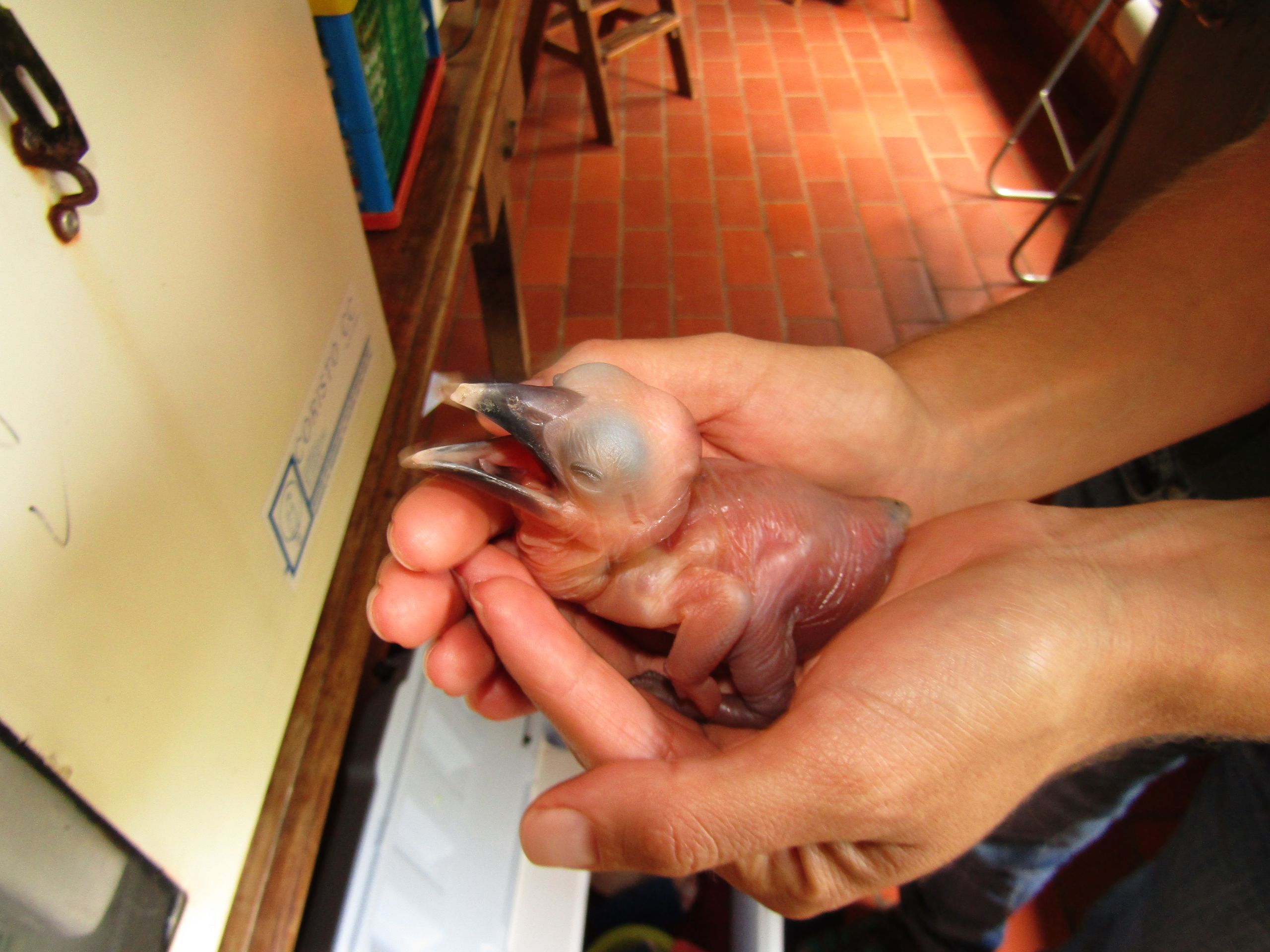
Seven years on, and I am still learning about this enigmatic species every day – they never fail to astonish me. What an adventure this has been.
Our hearts go out to our Patron
Sending much love and strength
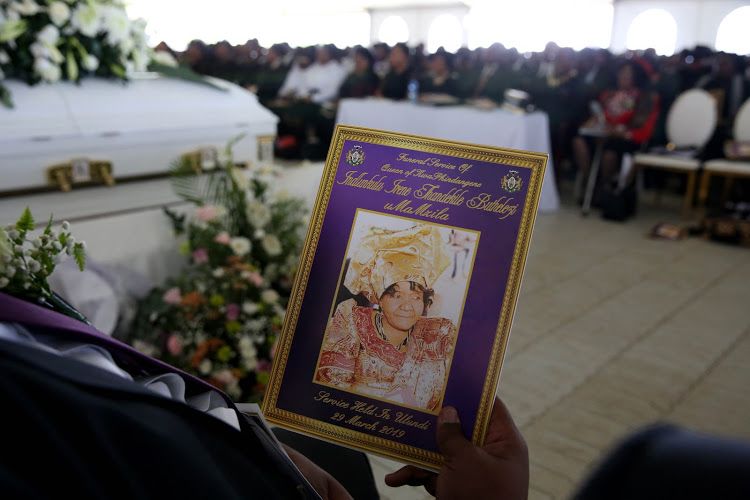
We have two pressing wishes on our wish-list at the moment. With the ESKOM power outages we are desperately in need of a 10 kVA generator for the Baobab. We also need a centrifuge for the Baobab so we can ensure any blood samples we take reach the lab in good form.
